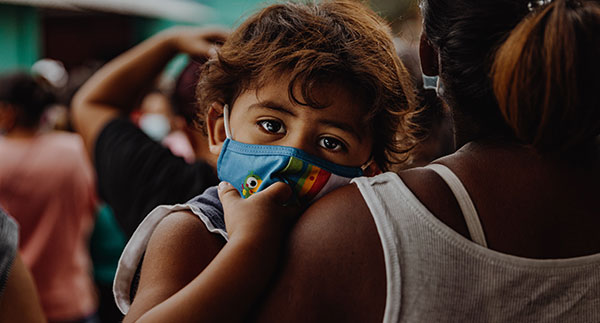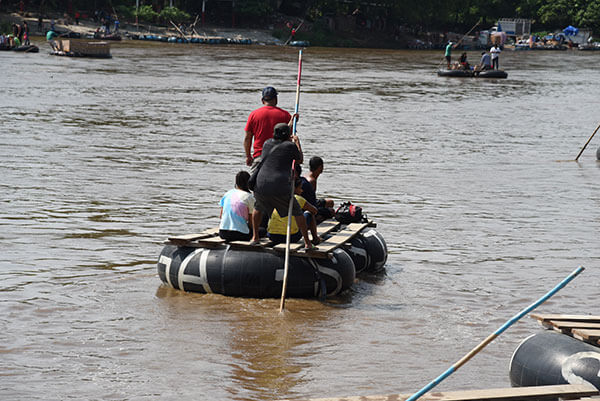Many of us find statistics overwhelming, whether they refer to homelessness, irregular migration, or both. Understanding the dimensions of a crisis is important, but so is seeing and recognizing the human faces and stories of the people involved.

For countless children and adolescents in Central America and Mexico, extreme levels of violence and poverty close off avenues to education, stability, and, ultimately, meaningful work. Many see migration as their best — or only — option to survive. They may move from place to place within their countries or the region, or pin their hopes on a longer, riskier journey to the United States.
Young people who embark on the migrant trail risk experiencing assault, trafficking, rape, kidnapping, robbery, physical and mental health complications, and the heartbreak, shame, and peril of being turned back to the poverty and violence that drove them away.
Covenant House is present in the busy border areas between Honduras and Guatemala and between Guatemala and Mexico. At our outreach programs in San Pedro Sula, Honduras, and Coatepeque, Guatemala, we meet youth and young families before they set out, in the midst of their journeys, and when they’ve been deported and returned to their countries.

Our border staff include legal, case management, and family reintegration experts who assess and assist the youth and families in each of these situations. They then provide the necessary support to the families in their home or temporary communities. If our staff observe that a young person would be better served — and safer — at one of our residences, they will ensure that accommodation.
Across our residences in Latin America, about 9% of our youth have migrated from another country to the one where they currently reside with us. In Mexico, we have a residence where our staff are specifically dedicated to helping migrant boys process their experiences and apply for asylum.
At all of our Latin America houses, we are working to make things better for young people, providing safety, healing, support, and opportunity. Our hope is that our transformative programs and services will reduce their need to embark on such a risky journey.